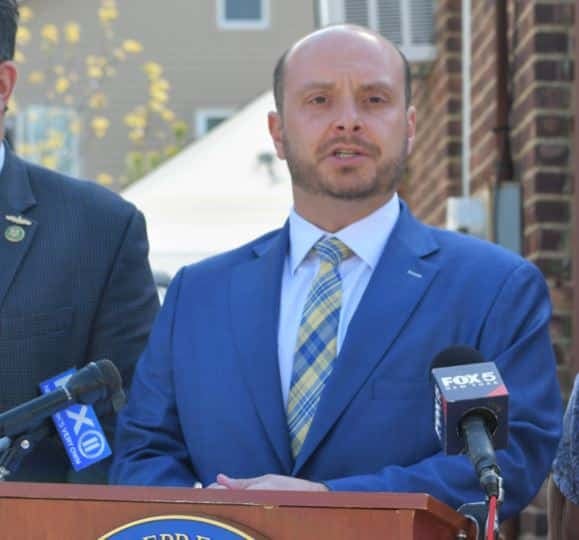New Bipartisan Caucus Aims to Secure State and Local Tax Deduction

WASHINGTON — Members of the recently-formed bipartisan State and Local Tax Caucus are urging their colleagues to support legislation removing the SALT deduction cap, arguing it will provide often neglected middle-class Americans with needed financial assistance.
The bill, the Securing Access to Lower Taxes by ensuring Deductibility Act, was introduced by Rep. Andrew Garbarino, R-N.Y., who represents a district encompassing much of the south shore of Long Island, New York, where property taxes easily top $15,000 a year for most homeowners.
The state and local tax deduction, also known as the SALT deduction, was implemented more than a century and a half ago to prevent federal taxes from being imposed on top of state and local taxes already being paid.
The original law enabled taxpayers who itemize when filing their federal taxes to deduct most if not all of these property tax payments.
That changed when Republican lawmakers capped the deduction at $10,000 as part of the Trump-era Tax Cuts and Jobs Act of 2017. While the legislation benefited corporations and the wealthy, Garbarino and other proponents of the new bill contend that the cap effectively became a tax hike on middle class residents of states in the Northeast and California.
Though the cap is set to expire in 2025, Garbarino and his more than 40 co-sponsors say their impacted constituents can’t wait for tax relief.
“This cap is financially devastating to so many of our constituents,” Garbarino said during a press conference on Long island. “They’re being double taxed on money that was never really available to them.”
“For those of us that file [itemized deductions], we have four basic deductions: mortgage interest, health care costs, charitable contributions and state and local taxes, and they took that damn thing away from us,” said Rep. Anna Eshoo, D-Calif., during a telephone town hall earlier this week.
“You have to have a reasonably high income to have a $10,000 tax billed to your local and state governments,” said tax spokesperson for NerdWallet Andy Rosen. “It’s important to remember that you can still deduct many state and local taxes, just not as much as it used to be. [If] your tax burden is above that cap, then an expansion or removal may affect you.”
Other points of contention surrounding removing the SALT deduction cap include that federal revenue would significantly decrease.
“If they are trying to make a bill that doesn’t affect revenue at all, they’d have to find another way to raise some money,” Rosen said. “This covers things beyond state and local taxes. It doesn’t just affect one group of people.”
Previous attempts to repeal the SALT deduction cap have failed, largely because they included provisions to raise taxes on those in higher tax brackets. The current bill does not include such provisions.
Eshoo said despite the bill supporters’ past failure to repeal the cap, she remained “determined to restore that deductibility for [all] state and local taxes.”
This comes as no surprise to Nerdwallet’s Rosen.
“There is obviously a persistent interest among some people in Congress, particularly for people in states where there is a higher tax burden, so I don’t see people dropping this issue,” he said. “Even if one bill passes or doesn’t, I think we’ll be continuing to talk about this for a long time.”
You can reach us at [email protected] and follow us on Facebook and Twitter






















